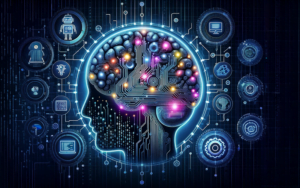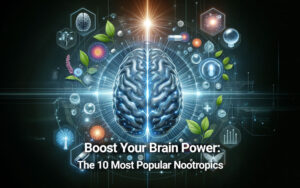In an era where technological advancements leapfrog at a dizzying pace, one breakthrough stands poised to redefine the landscape of computation and its myriad applications: Quantum Computing. This revolutionary technology, with its roots entangled in the realms of quantum mechanics, promises to catapult computational power and efficiency into a new stratosphere. But what exactly is quantum computing, and how does it differ from the computers we use today? As we embark on this exploration, prepare to unveil the mysteries of quantum bits and understand how they’re set to transform everything from cybersecurity to healthcare.
Table of Contents
What is Quantum Computing?
At its core, quantum computing departs radically from traditional computing. Classic computers, which have been the backbone of digital advancement, operate using bits – binary digits that exist in one of two states: 0 or 1. Quantum computing, however, introduces the quantum bit, or qubit. Unlike classical bits, qubits can exist simultaneously in multiple states, thanks to quantum phenomena known as superposition and entanglement. This ability allows quantum computers to process a vast amount of data at an unprecedented speed, dwarfing the capabilities of even the most advanced classical supercomputers.
The principle of superposition enables a qubit to be in a combination of both 0 and 1 states at the same time. Imagine being able to read every book in a library simultaneously – that’s the kind of parallel processing power quantum computing brings to the table. Entanglement, another quantum marvel, allows qubits that are entangled to be in a correlated state – change the state of one, and the other changes instantaneously, regardless of the distance between them. This phenomenon could potentially lead to unbreakable encryption and a new era of secure communication.
The Current State of Quantum Computing
Quantum computing is no longer a theoretical concept relegated to the halls of academia; it has taken tangible strides towards reality. Tech giants such as Google, IBM, and Microsoft are investing heavily in quantum computing research. Google’s quantum computer, Sycamore, claimed “quantum supremacy” in 2019 by performing a complex computation in 200 seconds – a task that would take a traditional supercomputer approximately 10,000 years.
Current applications being explored include complex problem-solving in fields like chemistry and physics, where quantum computers can model molecular structures in ways impossible for classical computers. Financial modeling, weather forecasting, and logistics optimization are other arenas where quantum computing is set to make significant inroads. However, this is just the tip of the iceberg. The full scope of quantum computing’s applications is still largely uncharted, promising a future brimming with potential.
The Impact on Cybersecurity
As we delve into the realm of quantum computing, its impact on cybersecurity emerges as a critical discussion point. Traditional encryption methods, the bedrock of data security in our digital world, could potentially be rendered obsolete in the face of quantum computing’s capabilities. Quantum computers, with their ability to perform complex calculations at unprecedented speeds, might one day crack encryption algorithms that currently take years to decipher.
However, this challenge also heralds an opportunity for quantum-safe encryption methods. Researchers are already exploring quantum cryptography, including quantum key distribution (QKD), which promises a level of security theoretically immune to quantum attacks. The race to develop quantum-resistant encryption is not just about safeguarding data; it’s a pivotal step in the evolution of our digital infrastructure. As quantum computing continues to grow, its symbiotic relationship with cybersecurity will undeniably shape the future of secure communication.
Healthcare
The potential of quantum computing extends beyond the realms of cryptography and into the life-altering field of healthcare. In medical research, quantum computing offers the promise of expediting drug discovery by accurately simulating molecular interactions, a task that overwhelms even the most powerful of today’s supercomputers. This could dramatically reduce the time and cost associated with developing new treatments.
Moreover, quantum algorithms hold the potential to revolutionize diagnostic procedures. They could enable the analysis of complex biological datasets at speeds unattainable by current methods, paving the way for more accurate and early disease detection. Personalized medicine, tailored to individual genetic profiles, could also become more feasible as quantum computing evolves, offering treatments based not on a one-size-fits-all approach, but on the unique genetic makeup of each patient.
Challenges and Limitations
Despite its promise, quantum tech is not without its hurdles. One of the most significant challenges is qubit stability. Qubits are notoriously prone to interference from their environment, a phenomenon known as quantum decoherence. Maintaining stable qubits over extended periods is critical for practical quantum computing, yet remains a formidable challenge.
Furthermore, the scalability of quantum computers presents another obstacle. Building a quantum computer with enough qubits to perform complex calculations requires incredibly precise control and error correction mechanisms. The gap between theoretical models and practical implementation is still wide, and bridging it requires not only technological advancements but also a deeper understanding of quantum mechanics.
The Future
As we peer into the horizon of quantum computing, the possibilities appear both boundless and exhilarating. Over the next decade, we can expect advancements that inch us closer to making quantum computing a practical reality. This evolution will likely transform a myriad of fields – artificial intelligence, machine learning, and material science, to name a few.
In the realm of artificial intelligence, quantum computing could enable machines to learn and make decisions with a level of complexity far surpassing current capabilities. The synergy between AI and quantum computing might well be the catalyst for a new era of innovation, where machines not only compute but also reason.
However, as we embark on this quantum journey, it’s imperative to consider the philosophical and ethical implications. This technology holds the power to unlock secrets of the universe, but with great power comes great responsibility. How we harness this power and guide its application will be crucial in shaping a future where technology not only advances human potential but also upholds our values and principles.
Quantum computing stands at the precipice of a new technological era, promising to reshape the world as we know it. From redefining cybersecurity to revolutionizing healthcare, its potential is as vast as it is profound. As we navigate this uncharted territory, staying informed and engaged with these developments is crucial. The future of quantum computing is not just a distant dream; it’s a reality that’s unfolding before our eyes, beckoning us to participate in its unfolding story.
Stay curious and informed. The quantum age is just beginning.
References:
Hughes, N. C. (2023, November 1). The Future of Quantum Computing: Predictions for 2024 and Beyond. Techopedia. Retrieved from https://www.techopedia.com/the-future-of-quantum-computing-predictions-for-2024-and-beyond/2/34392
Saran, C. (2024, January 30). Quantum computing in 2024: What are the challenges? Computer Weekly. Retrieved from https://www.computerweekly.com/feature/Quantum-computing-in-2024-What-are-the-challenges
To Learn More:
Blockchain in Cryptocurrency Trading: How Blockchain has Revolutionized Cryptocurrency Trading
Demystifying AI: Understanding Artificial Intelligence in Today’s World





